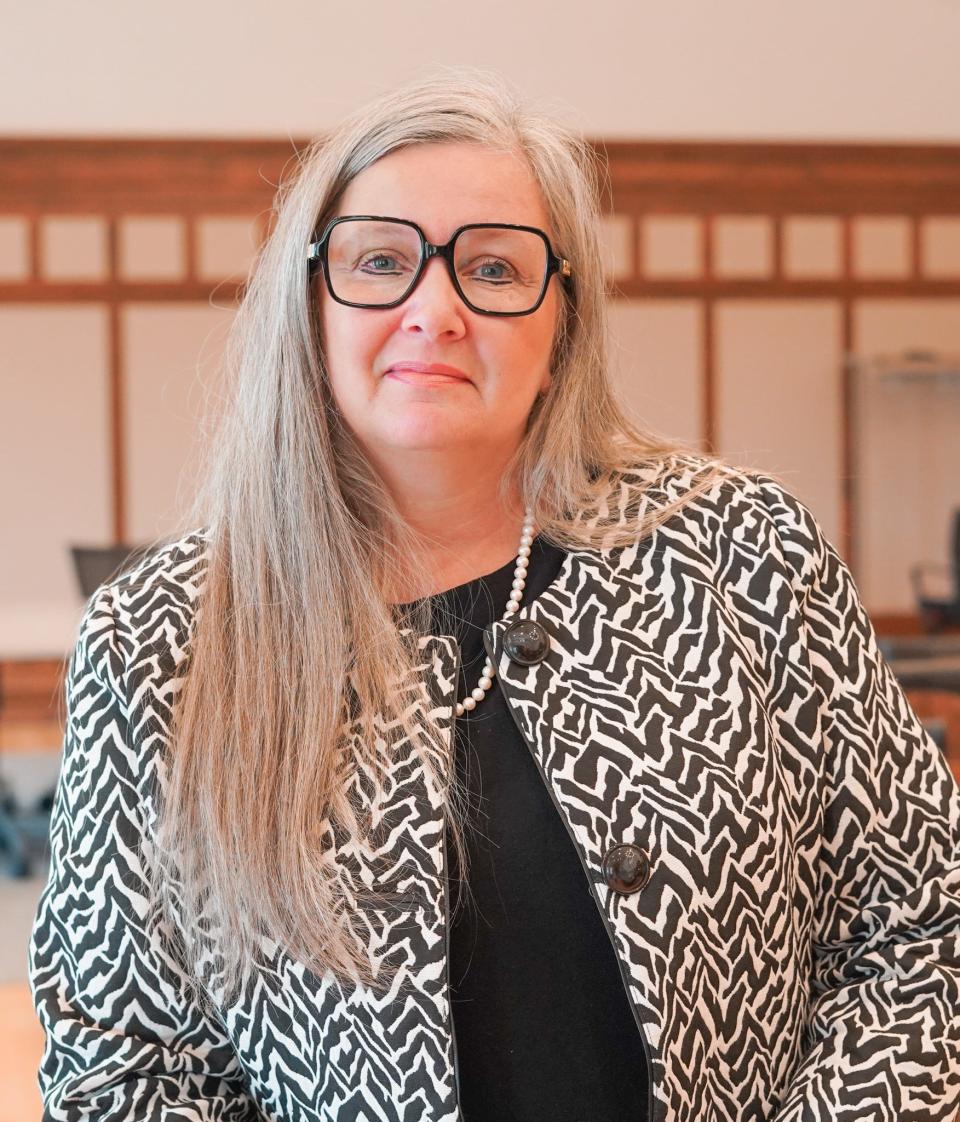Lenawee County offering virtual book read in effort to combat substance use disorder
- Oops!Something went wrong.Please try again later.
ADRIAN — As part of its effort to help the community understand that substance use disorder can affect anyone, work to remove stigma and break down barriers to recovery, Lenawee County is hosting a virtual community book read.
Community members are invited to read “The Least of Us” by Sam Quinones. A virtual discussion will take place from 6 to 7:30 p.m. Oct. 2 via Zoom at tinyurl.com/lencobookreadoct2. The book is available at local libraries and online at all major book retailers.
In “The Least of Us,” Quinones provides a follow up to his New York Times best-selling work “Dreamland” that explores the next stages of the opioid epidemic and stories of community repair.
Quinones traveled from Mexico to main streets across the U.S. to create “Dreamland,” a portrait of the opioid epidemic, according to a description of the book from its publisher, Bloomsbury Publishing. As the nation struggled to put back the pieces, Quinones was among the first to see the dangers that lay ahead: synthetic drugs and a new generation of kingpins whose product could be made in blenders.
Traffickers lacing fentanyl, a painkiller more powerful than morphine, into cocaine, methamphetamine and counterfeit pills caused tens of thousands of deaths, the book description says. At the same time, Mexican traffickers made methamphetamine cheaper and more potent, creating, Quinones argues, swaths of mental illness and a surge in homelessness across the U.S.
Subscribe Now: For all the latest local developments, breaking news, and high school and college sports content.
Quinones hit the road to investigate these new threats, discovering how addiction is exacerbated by consumer-product corporations.
“In a time when drug traffickers act like corporations and corporations like traffickers, our best defense, perhaps our only defense, lies in bolstering community,” Quinones wrote.
Weaving analysis of the drug trade into stories of communities, “The Least of Us” delivers a response to the call that shocked the nation in “Dreamland,” the description says.
“We are super excited to host this first community book read,” Lenawee County Community Development Coordinator Francine Zysk said in a news release. “Mr. Quinones is a journalist and author who has spent the last 30-plus years researching and reporting on the substance abuse problems in the United States and Mexico. His first book ‘Dreamland’ covered the opioid epidemic, and this book gets into the problems we are now facing with fentanyl and methamphetamine. This discussion is a fantastic opportunity for any community members who are engaged or interested in advocating for change in our community.”

The book read comes as Zysk works with community partners and area universities on the creation of the Lenawee County Opioid Action Plan, which will determine how the county will spend opioid settlement monies it is receiving from class action lawsuits against major pharmaceutical companies, manufacturers and retailers.
Goals of the plan include reducing overdose death, creating sustainable care for those living with substance use disorder (SUD) and improving quality of life for those affected.
So far, Zysk has met with the Michigan Association of Counties and the community needs assessment team, has received questionnaires filled out by community members and has held a town hall meeting.
She will request bids, provide a bid recommendation to the county commission and report on contracts and programs this fall.
In a settlement of a class action lawsuit against the three largest pharmaceutical distributors — McKesson, Cardinal Health and AmerisourceBergen — as well as against manufacturer Janssen Pharmaceuticals Inc. and its parent company, Johnson & Johnson, Lenawee County has thus far received more than $500,000.
It is projected to receive $1,570,858 in a settlement with three pharmacy chains — CVS, Walgreens and Walmart — as well as two manufacturers — Allergan and Teva.
Class action opioid lawsuit monies from the pharmaceutical distributors, pharmacy chains and manufacturers will continue to roll in through 2040.
Lenawee County remains behind neighboring counties like Washtenaw in terms of the facilities, programs and services available to those living with SUD and co-occurring disorders.
SUD treatment providers in Lenawee County include McCoullough Vargas & Associates of Adrian; Catholic Charities of Jackson, Lenawee and Hillsdale Counties in Adrian; Parkside Family Counseling of Adrian; and services through the Lenawee Community Mental Health Authority in Adrian.
A new Lenawee County chapter of the Macomb County-based nonprofit Families Against Narcotics (FAN) also was recently formed. FAN educates about addiction and dispels the stigma associated with SUD while working to prevent narcotics-related deaths and reduce recidivism in the criminal justice system by those with SUD.
FAN public forums are at 7 p.m. on the fourth Tuesday of every month in the community room at the Adrian District Library in downtown Adrian. Attendees include those living with SUD and their family members where they are educated about addiction and recovery and enjoy fellowship with people in similar situations. FAN’s services are provided free of charge.
“As our Opioid Action Team dives deep into the data of the substance abuse disorder epidemic facing Lenawee County, we have uncovered some interesting facts,” Zysk said in the release. “We had 28 members of our community die last year from overdose, and the analysis is startling. The problem is no longer related just to prescription narcotics and heroin. We are seeing evidence that fentanyl and methamphetamine are our biggest challenges in the days ahead. We think this community book read is a great launching pad to start discussing this across the community.”
This article originally appeared on The Daily Telegram: Lenawee County offering virtual book read on fentanyl, meth problem

